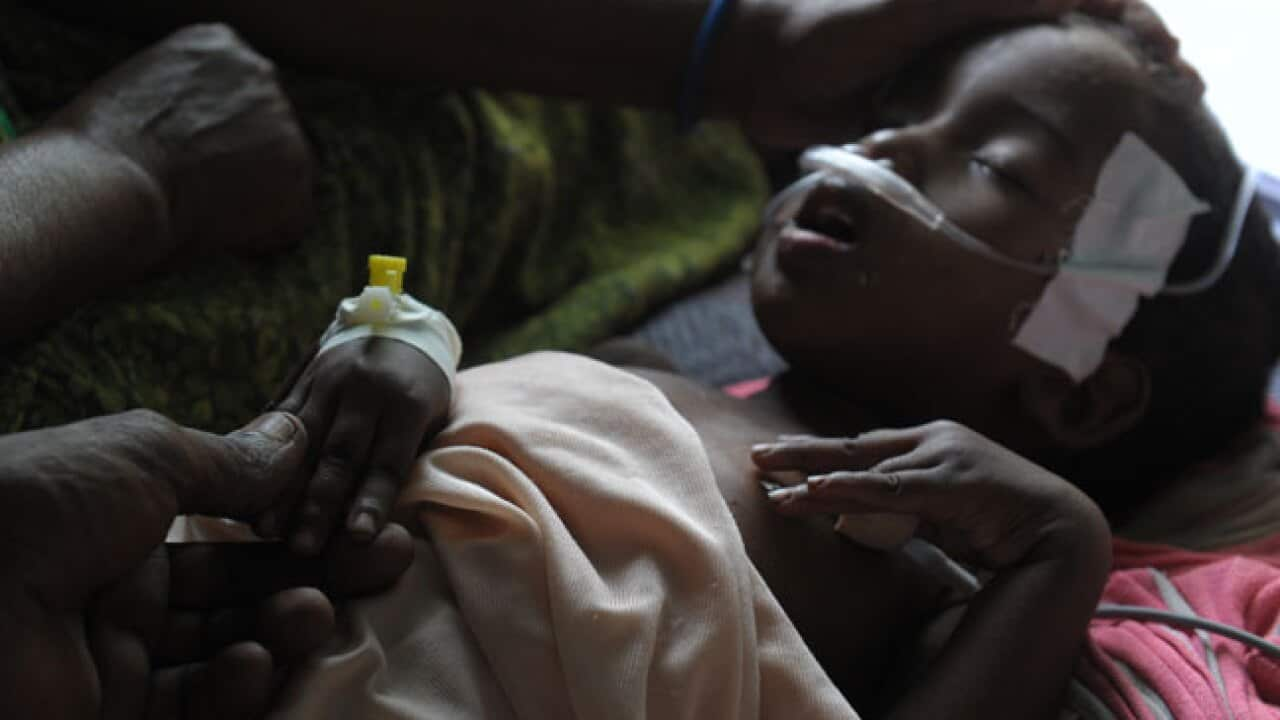The death toll in famine-hit Somalia will escalate unless urgent action is taken, the first British minister to visit war-torn Mogadishu in over 18 years said.
"The stark fact is that in southern Somalia the situation is deteriorating by the day," Andrew Mitchell, Britain's international development secretary, said in Nairobi following a visit to Mogadishu.
Up to 400,000 children are at risk of death through starvation if urgent action is not taken now, he added, announcing a 29 million euros ($A39.93 million) funding boost.
Without an "urgent response" the crisis could become as bad as Somalia's 1991-2 famine, when over 200,000 people lost their lives, warned Mitchell, who visited feeding centres and camps for those fleeing extreme drought.
"This is a race against time," he warned.
Britain's funding boost - to be channelled through the UN children's agency - includes two months supplementary rations for up to 192,000 people, and measles vaccinations for at least 800,000 children.
Over 12 million people in parts of Djibouti, Ethiopia, Kenya, Somalia and Uganda are in danger of starvation in the wake of the region's worst drought in decades.
War-wracked Somalia is the country hardest hit by the Horn of Africa drought, with five areas declared to be experiencing famine, much of those under the control of the Islamist Shebab militia.
"Evidence of malnutrition is not just in the camps and feeding centres but on every street corner," Mitchell said.
"We risk seeing a whole generation of people decimated by starvation and disease, and further instability across the region," he added.
Mitchell explained that the recent Shebab withdrawal from the capital, Mogadishu, had not allowed the widening of aid delivery to the areas abandoned by the rebels.
"It is clear that with the Shebab withdrawing, there is an opportunity for the transitional government to first of all stabilise its position in Mogadishu," he told reporters in Nairobi.
"The withdrawal of the Shebab does not make it necessarily easier for humanitarian and relief agencies. It is difficult for them to operate in ungoverned space."
Share

